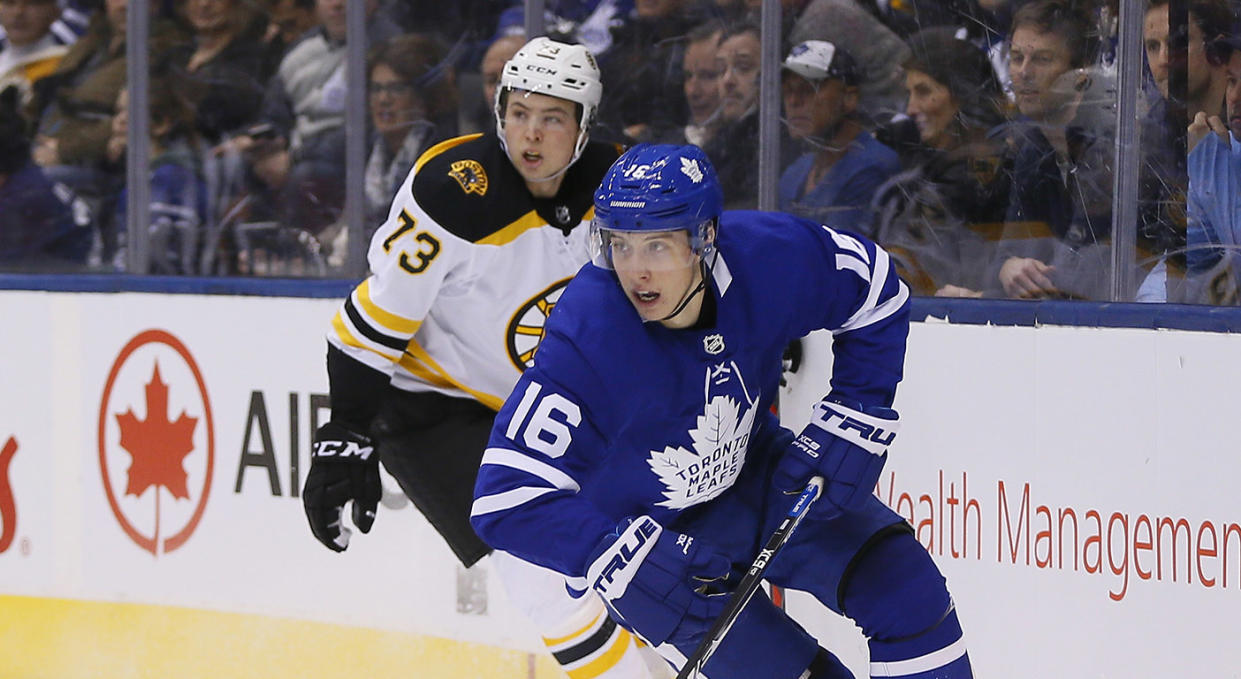What the Zach Werenski deal means for NHL's remaining RFAs

For weeks now, we’ve heard that everyone in the NHL was just waiting for one domino to fall.
Once the first high-profile, out-of-contract restricted free agent re-signed with his team, the rest would follow in quick succession. And so early Monday afternoon, Zach Werenski became that first domino, signing a three-year deal worth $15 million — with the actual amount he’s being paid increasing sharply in the final year of the deal — but not actually giving up any UFA years.
Crucially, Werenski will still be an RFA with arbitration rights when his new deal expires after the 2021-22 season. That means Columbus didn’t have to pay big bucks for buying up UFA seasons, but the player is guaranteed a qualifying offer of $7 million, and likely will earn a lot more than that on any new contract if it gets to an arbitrator. Otherwise, the team would have the option of paying huge money for his late 20s and likely early 30s.
Zach Werenski on signing his three-year deal with the #CBJ: “I’m really excited about it. It’s been an awesome day for me.”
— Jeff Svoboda (@JacketsInsider) September 9, 2019
There are two things that are important to keep in mind about Werenski being the first domino to fall, though. Obviously this is relatively short money for a player of Werenski’s stature, but that three-year term and all that comes with it is the price Columbus pays for an eminently reasonable AAV.
On the one hand, the Blue Jackets were desperate to start the season with him in a summer full of taking unmitigated Ls. Everything went sideways for them, they shed a lot of talent and got almost none back, and entering camp without Werenski would have been a PR disaster. That weighted things in the player’s favour significantly. On the other, Werenski is coming off a somewhat disappointing year; he produced less than he did as a rookie and really struggled at 5-on-5 in particular, even as he rounded out his game in other ways.
In that way, this deal makes sense for all involved. It’s not a pure bridge deal where Columbus is kicking the can down the road a year or two. It is probably the lowest AAV Werenski could have reasonably gotten and he’s going to have plenty of protections in place to make sure he gets paid again before he can hit the open market, with the flexibility to do a longer-term deal at the end of this one.
As for how that impacts other RFAs still out of contract (and there are plenty, including some defenders), the answer should be clear: If you start seeing guys like Charlie McAvoy and Ivan Provorov, let alone Tony DeAngelo and Brandon Carlo, take less money than you’d expect on two-and three-year deals, this contract will be the No. 1 reason why. McAvoy is clearly the best of the group, but he’s also in a situation where his employer is also trying to lock up Carlo, a fine middle-pair defenceman who’s now going to have to eat a shockingly low AAV if he wants to try to cash in again before he hits UFA status.
That shouldn’t be McAvoy’s problem, but of course it will be because that’s how all this works. Most of the summer the prevailing wisdom has been that McAvoy would get under $8 million a year even if he went long-term. Now that number seems like it’ll come in lower, though if we’re going by quality of player, it should certainly be above what Werenski (who, to be fair, has an extra year in the league under his belt) now makes. With that in mind, maybe McAvoy goes four years at an even higher price point, but one imagines he still doesn’t break the bank.
Werenski deal could be a catalyst for McAvoy and Provorov, but no guarantee either. Of the two big RFA D, McAvoy has proclaimed his love for BOS and it would appear he’s much more inclined to want to a longer-term deal (6, 7 or 8?) than a bridge (2 or 3).
— Bob McKenzie (@TSNBobMcKenzie) September 9, 2019
What’s less clear, for obvious reasons, is how this affects high-end forwards like Mitch Marner, Kyle Connor, Mikko Rantanen, Matthew Tkachuk, Brock Boeser, and Brayden Point. As they are not defencemen and are certainly not coming off the down year Werenski is, their situations get a little dicey in terms of the AAV they’ll be asking for, but the term on this deal is going to look very appealing to team and player.
Again, employers will get the opportunity to say, “We locked in so-and-so, that’s good,” which then employees will be able to say, “And then I’m going to absolutely wring you dry in two, three, four years’ time.” One can see where teams would be more reluctant to give players the flexibility to get to that last RFA year, ensure themselves one big payday, then wait out the market for a big UFA deal so they can cash in again.
Already, we’re hearing that this is how many insiders saw the Marner contract — obviously at a much higher AAV — ending up, so it really might be just a matter of days before all this is avoided. Negotiations being what they are, the players aren’t going to be happy about the short money, and teams aren’t going to be happy about the short term, but that’s life.
Because many of these deals probably aren’t going to go how anyone involved wanted, in their ideal scenarios, maybe this was the only logical conclusion.
Ryan Lambert is a Yahoo! Sports hockey columnist. His email is here and his Twitter is here.
All stats/salary info via Natural Stat Trick, Evolving Hockey, Hockey Reference, CapFriendly and Corsica unless noted.
More NHL coverage from Yahoo Sports



